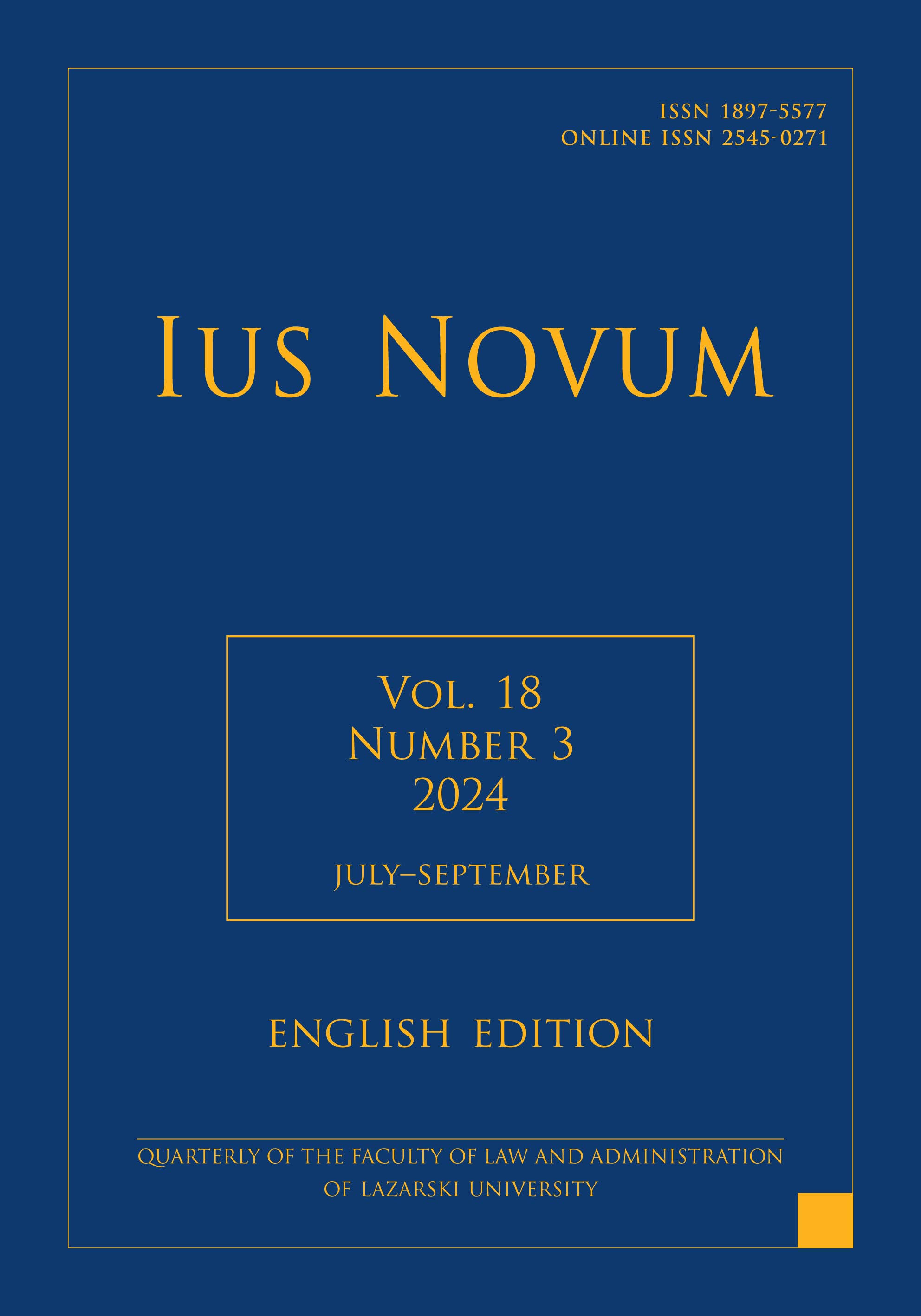THE RIGHT TO EFFECTIVE REDRESS
FROM A MUNICIPALITY FOR FAILURE
TO PROVIDE SOCIAL HOUSING
THE RIGHT TO EFFECTIVE REDRESS
FROM A MUNICIPALITY FOR FAILURE
TO PROVIDE SOCIAL HOUSING
Author(s): Aneta ŁazarskaSubject(s): Civil Law, Public Law, Welfare systems
Published by: Oficyna Wydawnicza Uczelni Łazarskiego
Keywords: ownership law; peaceful enjoyment of possessions; compensation; social housing; protection of tenants’ rights; owner; municipality; effective protection; damage; remedy;
Summary/Abstract: Article 1 of Protocol No. 1 to the Convention for the Protection of Human Rights andFundamental Freedoms provides that every natural and legal person is entitled to the peacefulenjoyment of their possessions. No one shall be deprived of their possessions except in thepublic interest and subject to the conditions provided by law and the general principles ofinternational law.The primary purpose of these provisions is to protect property. By recognising thateveryone has the right to the peaceful enjoyment of their possessions, Article 1 of ProtocolNo. 1 to the Convention for the Protection of Human Rights and Fundamental Freedomseffectively guarantees the right to property, with deprivation of property permissible onlyunder certain conditions.These guarantees are not sufficiently implemented in national case law. Althoughmunicipalities are required to provide compensation (Article 18(3a) of the Act on the Protectionof Tenants’ Rights, Housing Resources of Municipalities and on Amendments to the CivilCode), the courts are too stringent in assessing the evidentiary requirements imposed onapplicants. In the case of Wyszyński v. Poland, where the applicant was not awarded damagesfrom the municipality for failing to provide social housing, the Court rightly noted that thedomestic courts assumed that the applicant had failed to prove that the damage sustainedwas a normal consequence of the municipality’s unlawful inactivity, even though two expertopinions were produced during the proceedings. In the case of Broniowski v. Poland, concerningproperty beyond the Bug River, it was clearly indicated that the taking of property withoutcompensation in reasonable proportion to its value is generally considered disproportionateinterference, and a total absence of compensation can only be justified in exceptional circumstances. It also appears essential, when assessing the existence of an adequate causal link,to rely on the knowledge and life experience of the adjudicating panel, applied appropriatelyto the circumstances of the case. The requirements as to the proof of damage should not beinterpreted too strictly.There is a need to liberalise evidentiary proceedings and make broader use of factualpresumptions (Article 231 of the Code of Civil Procedure), as well as to limit the evidencerequired for substantiation, to ensure that the owner can effectively seek compensation fromthe municipality for failure to provide social housing.Clear legislative intervention is necessary to address the defective court practices. It wouldbe advisable to make an explicit procedural reference to the application of Article 322 of theCode of Civil Procedure in this category of cases, not only regarding the amount of damagebut also concerning the fact that it occurred.
Journal: Ius Novum
- Issue Year: 18/2024
- Issue No: 3 ENG
- Page Range: 91-107
- Page Count: 17
- Language: English

